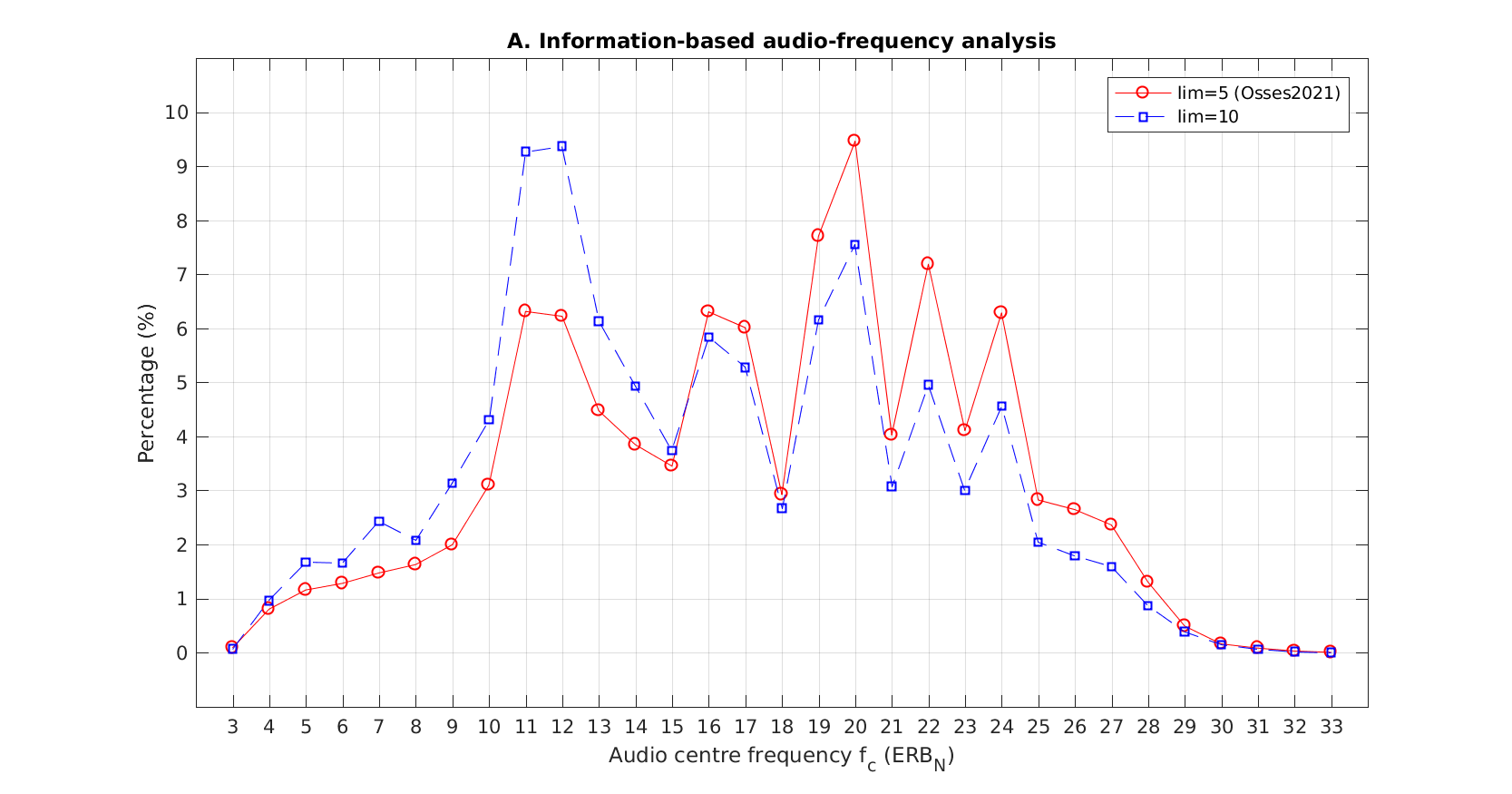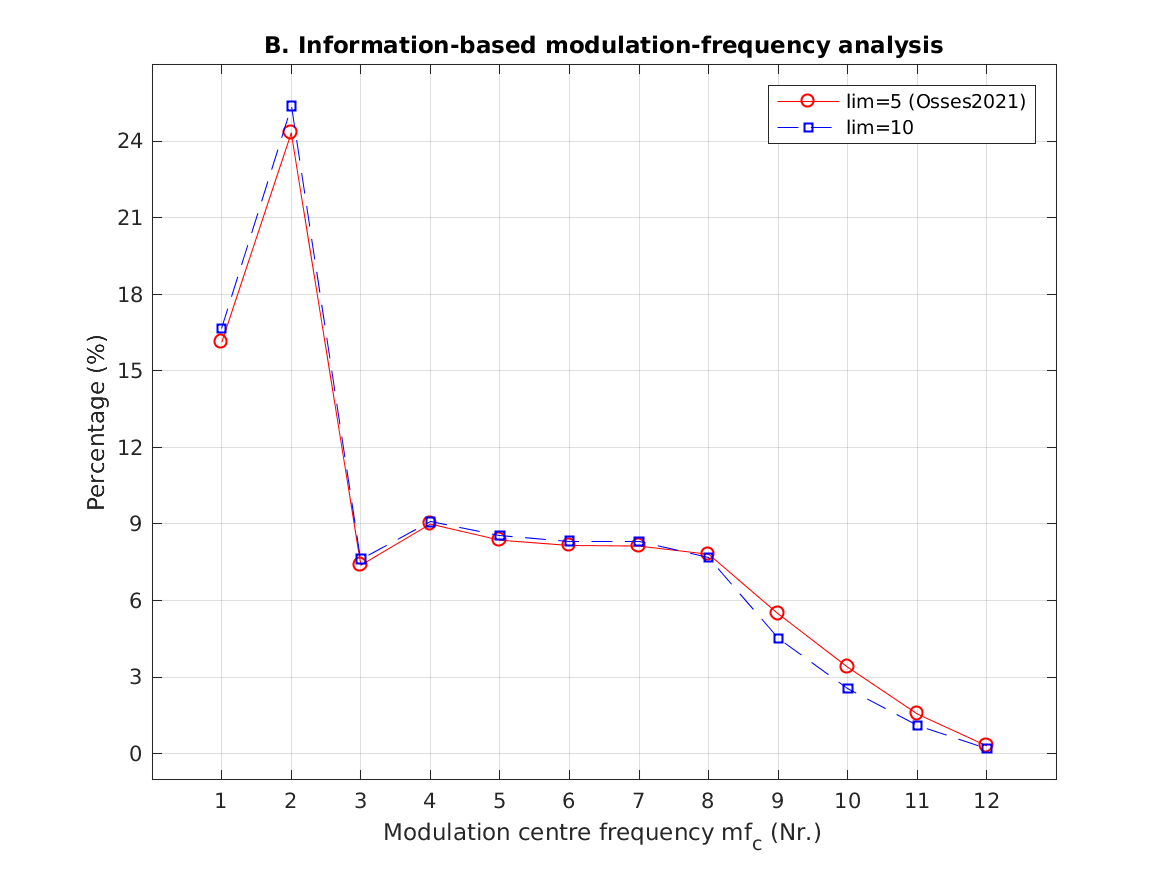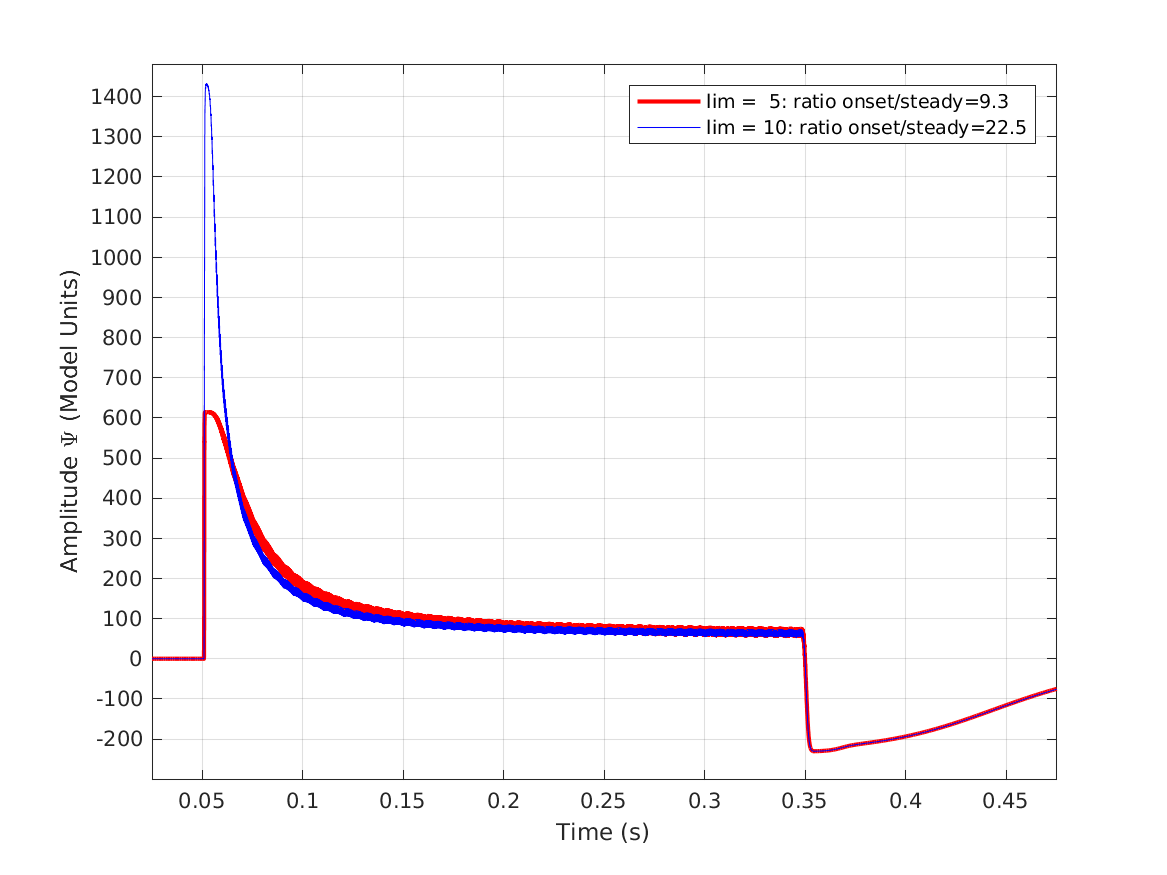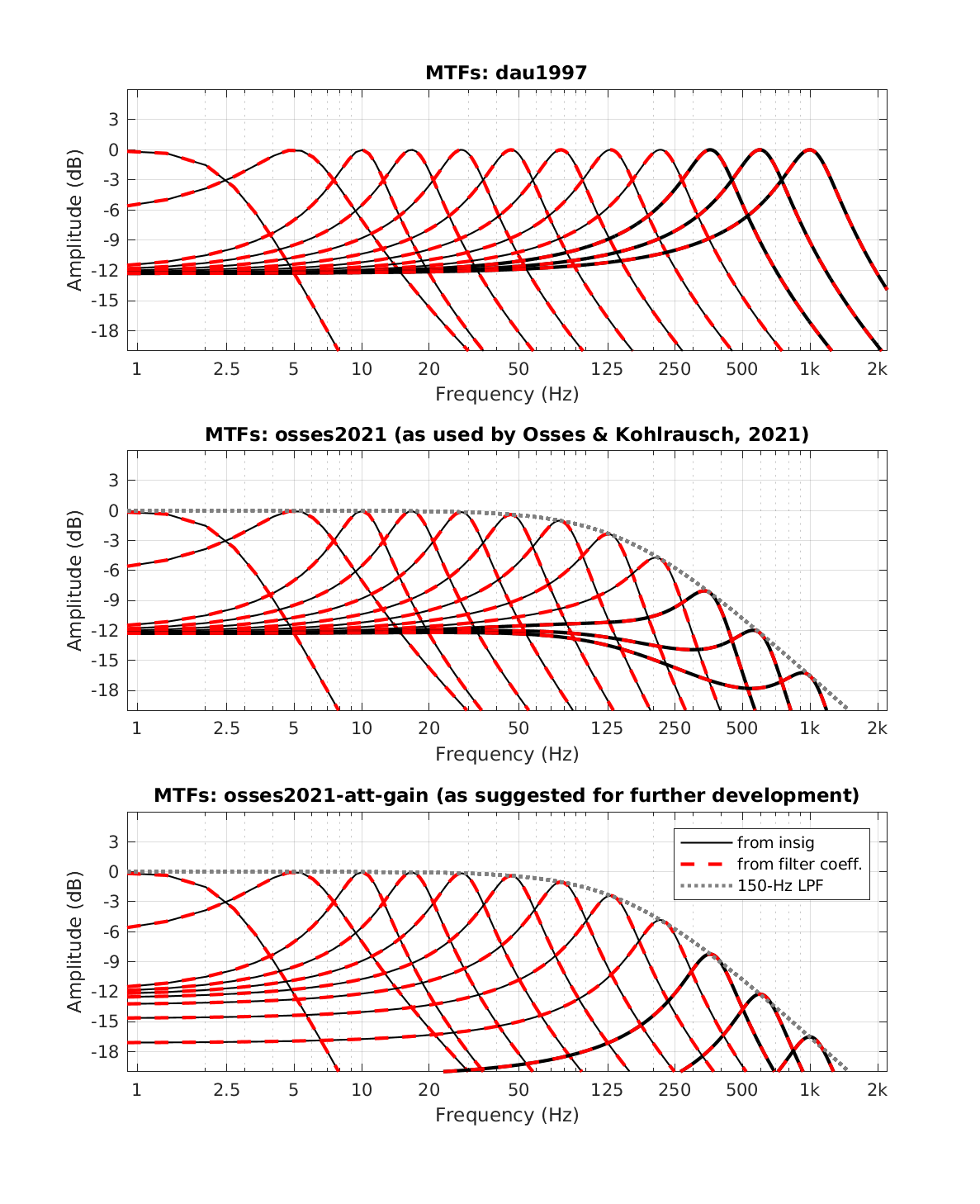THE AUDITORY MODELING TOOLBOX
EXP_OSSES2021
monaural perceptual similarity
Usage:
data = exp_osses2021(flags)
Description:
exp_osses2021 reproduces Figs. 4, 11 and 14 from Osses and Kohlrausch (2021), where a modified version of the dau1997 model is used. The figures are similar to Figs. 4.14, C.9B, and C.11B from Osses (2018).
The following flags can be specified:
| 'redo' | Recomputes data for specified figure |
| 'plot' | Plot the output of the experiment. This is the default. |
| 'no_plot' | Don't plot, only return data. |
| 'fig4_osses2020' | Reproduce Fig. 4 of Osses et al. (2020). |
| 'fig14_osses2020' | Reproduce Fig. 14 of Osses et al. (2020). |
| 'fig4' | Reproduce Fig. 4 of Osses and Kohlrausch (2021). This is the same figure as Fig. 4 of Osses and Kohlrausch (2020, preprint) |
| 'fig11' | Reproduce Fig. 11 of Osses and Kohlrausch (2021). This is the same figure as Fig. 14 of Osses and Kohlrausch (2020, preprint) |
| 'fig14' | Reproduce Fig. 14 of Osses and Kohlrausch (2021). |
Fig. 4 - Two internal representations of a piano sound ('P1') using the PEMO model with two configurations of the adaptation loops are shown: Overshoot limitation with a factor of 5, as suggested in Osses and Kohlrausch (2021), and with a factor of 10 (see Dau et al., 1997). To display Fig. 4 of Osses and Kohlrausch (2021) use :
out = exp_osses2021('fig4'); % same as: out = exp_dau1997('fig4_osses2020');
|

|

|
Fig. 11 - The effect of the overshoot limitation with factors of 5 and 10 are shown for a 4-kHz pure tone of 70 dB SPL that includes 2.5-ms up/down ramps. For these plots the outer and middle ear stages are skipped. One gammatone filter at 4 kHz is used, followed by the IHC stage (ihc_breebaart2001), and the adaptation loops (adt_osses2021 for lim=5, adt_dau1997 for lim=10).
To display Fig. 11 of Osses and (2020) use :
out = exp_osses2021('fig11'); % same as: out = exp_dau1997('fig14_osses2020');
|

|
This code produces the following output:: Lim 5: Onset = 614.3 MU, steady = 66.2 MU Lim 10: Onset = 1432.3 MU, steady = 63.7 MU |
Fig. 14 - Modulation transfer functions for the 12 modulation filters in modfilterbank.m. This figure is obtained for a click of unit amplitude while all modules in osses2021 are by-passed except for the modulation filter bank. In the modulation filter bank, the phase insensitivity for filters with mfc>10 is disabled (see App. C of Osses and Kohlrausch, 2021) in a way that the outputs of the modulation filter are the complex valued filtered signals for each mfc. To display Fig. 14 of Osses and Kohlrausch (2021) use :
out = exp_osses2021('fig14');
|

|
References:
A. Osses and A. Kohlrausch. Perceptual similarity between piano notes: Simulations with a template-based perception model. The Journal of the Acoustical Society of America, 141(4), 2020.
M. Jepsen, S. Ewert, and T. Dau. A computational model of human auditory signal processing and perception. The Journal of the Acoustical Society of America, 124(1), 2008.
T. Dau, B. Kollmeier, and A. Kohlrausch. Modeling auditory processing of amplitude modulation. I. Detection and masking with narrow-band carriers. The Journal of the Acoustical Society of America, 102:2892--2905, 1997a.














